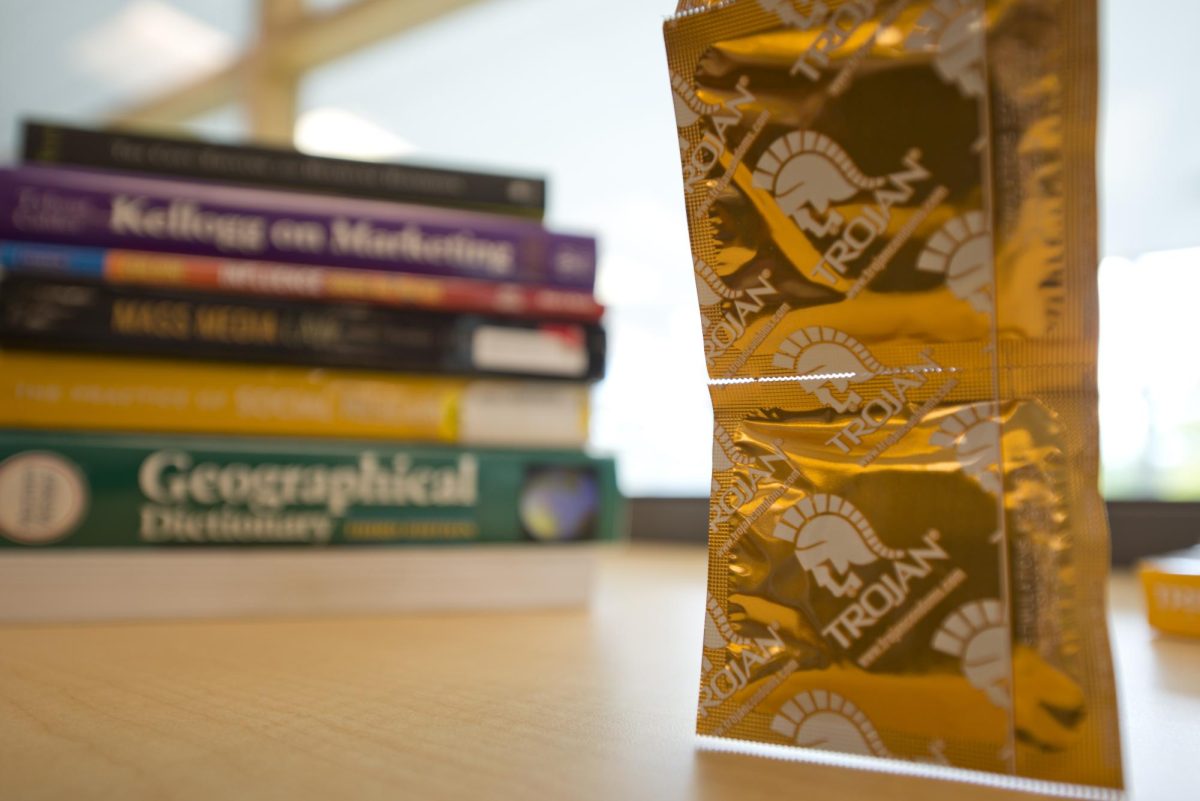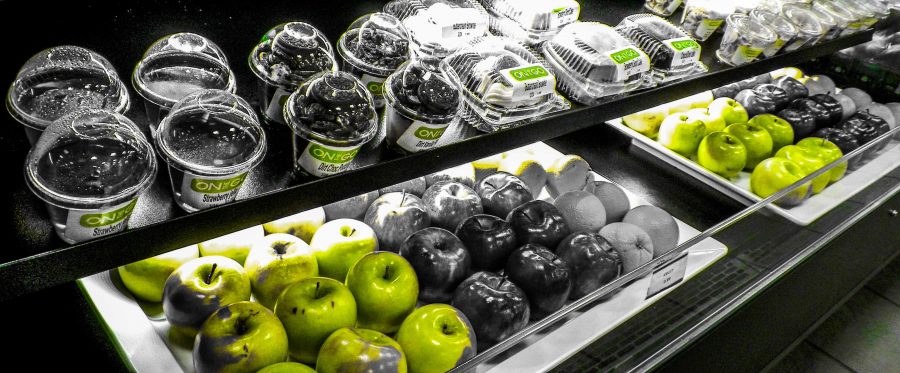The University of Utah has been radically growing as an institution. It shows in the U’s total net position (assets minus liabilities) having increased by over $1.4 billion (35 percent growth) since I first enrolled in 2014. This expansion can be seen all around campus in the recent construction of the Carolyn and Kem Gardner Commons, the Cleone Peterson Eccles Alumni House, the Crocker Science Center, the Executive Education Building and the George S. Eccles Student Life Center, to name a few. A Niche.com survey of campus life at the U found that the top three words students used to describe the U are “huge,” “diverse” and “growing.” Our institution’s acceptance into the Pac-12 was the regional acknowledgment of our growing prestige as a university.
One of the most critical departments on campus, however, has remained relatively stagnant since 1998. That is the year the U signed a contract they maintain to this day with a multinational corporation to privatize campus food services and transfer the management of all dining operations to private hands.
The best (or most poorly) kept secret on campus is that the U Dining Services is a pseudonym for the food services contract the U has with Chartwells Higher Education Dining Services, which is held by the massive corporation, Compass Group — a British-based, multinational contract foodservice company which operates in 50 countries and serves 5.5 billion meals a year. Our contract guarantees the U’s food services make a profit for the U. The U is also “contractually obligated” to abstain from releasing how much their contract with Chartwells costs. While I am not here to criticize or discredit the hard work the staff at U’s Dining Services does, a quick search of Chartwells will land you in the world of misdeeds and profiteering the corporate side of Chartwells and multinational Compass Group is notorious for.
Who Really Feeds U?
As a disclaimer, none of the cited allegations in this section are in any way, shape, or form related to the University of Utah’s Dining Services or any staff members employed or previously employed at the University of Utah’s Dining Services.
All across the country, the corporate side of Chartwells seems to be consistently at odds with the interests of their employees and the students they serve. Some notable instances include student outrage over Chartwells’ meal plan changes at DePaul University in 2018, a sudden increase in catering prices for student groups at Portland State this year, a movement to rake in unclaimed dining dollars at Texas A&M in 2014 and allegedly providing poor food safety training at University of Texas Dallas in 2018. This year, Chartwells was also responsible for laying off full-time employees with benefits over part-time employees at Carnegie Mellon and inciting high school student social media protests due to poor food quality. In 2015, they entered into a $19 million lawsuit involving the overcharging of D.C. public schools and the mismanaging of their school meal programs.
In a labor rights abuse exposé by The Mercury‘s Megan Zerez, it was uncovered that Chartwells had accusations levied at them from several pro-union staff members at UT Dallas who claimed their wages were being withheld, and that they faced harassment and were subjected to unfair labor practices aimed at destroying a growing effort to unionize the labor force of UT Dallas Food Services — going so far as distributing anti-union literature to all staff, banning two union-affiliated individuals from campus and utilizing campus police to threaten them with criminal trespassing. Chartwells has publicly denied all claims that they were attempting to suppress the labor union. Unionization efforts grew from disgruntled staff being subjected to promotions and work hours extensions without wage raises, even though they were allegedly promised raises.
In regards to the U, they’ve been pretty standard in their operation. Chartwells made a purchasing commitment in partnership with the U in 2015 that by 2020, every 20 cents of their food sourcing would come from local, fair, humane and ecologically friendly sources — though the implementation requirements described are vague. They created a program called Rooted to provide more plant-based items in their menus. They also give food to the Food Bank and to the Food Recovery Network, an ASUU student group which collects surplus foods.
Imagine U Footing the Bill
To manage food services for an entire university is no joke — to create menus, source food, prepare said food and staff and train employees for an entire campus is a vast undertaking. That is why outsourcing is the name of the game for many universities looking to balance their budgets. In the 2011 report, “Outsourcing in Higher Education: Empirical Examination,” several institutions were asked what the perceived benefits of outsourcing were. The top three were reducing operating costs, freeing up resources and improving quality. The idea is solid on paper — let someone bigger and more experienced do the job. While it does generate a guaranteed revenue for the U by transferring control over all food services to a private corporation, students and faculty are the biggest losers.
Private corporations have completely different operational objectives than the government when given the opportunity to manage the public sector. We’ve seen that with for-profit prisons, K-12 food contracts, private schools and any of the other parts of the public sector Ronald Reagan deemed worth privatizing. In an 1991 economic report published in the Harvard Review, “Does Privatization Serve the Public Interest?,” the authors came to three conclusions in deciding whether or not to privatize government services — privatization will be effective only if private managers have incentives to act in the public interest. Profits and public interest overlap best when the privatized service or asset is in a competitive market, meaning it takes competition from other companies; and the simple transfer of ownership from public to private hands will not necessarily reduce the cost or enhance the quality of services. These considerations should be taken into account when trying to determine whether or not it is worth privatizing our dining services.
The U campus hosts more than 32,000 undergraduate and graduate students, 4,500 faculty members and 5,300 staff on its busiest days. These routinely hungry people only have a few places they can take their dollars: the Union, the food truck court or the various small cafes and convenience stores scattered around campus. The vast majority of these locations are owned by Chartwells. Chartwells operates 16 locations on campus including every restaurant in the Union, the Peterson Heritage Center (PHC) dining hall and just about every cafe and market on campus save Caputo’s, Starbucks and Thirst. Aside from the food options offered by the Chartwells-owned franchises, the Chartwells-sourced food on campus is overpriced, lacking nutritional value and sometimes unpalatable. The PHC is no different, and the operation screams cost-efficiency and a weak commitment to nutrition and dietary needs. It would be best to go see for yourself or ask a friend what they think of the PHC, Union and campus food options and their pricing. When I asked my colleagues and friends, the response was unanimous — the cost is too high and the quality too low.
Sophia Perez, a biology student at the U, decided to live in the dorms her sophomore year and was forced to subscribe to a meal plan during her on-campus residency. Perez said her involuntary meal plan for the Fall 2017 semester was around $850 in total and came with 40 meal swipes at the PHC (a food buffet with a bad reputation among students) and 400 “flex dollars,” which can only be used at Chartwells-operated locations on campus. These meal plans are most likely mandated and controlled by Chartwells — allowing them to lock students into their monopoly, subsidize any losses in food sales and force students into paying for food options which they wouldn’t normally buy. Perez said she eventually got so tired of the quality of food at the PHC, she would only go out of necessity, generally choosing to eat off campus. Her unspent flex dollars became pure profit for Chartwells in the same way a lost gift card becomes pure profit for the corporation that issued it. A 2014 report found that millions of Chartwells dining dollars were left unspent by Texas A&M students who were forced to buy food plans. Chartwells, in response to the outrage levied by Texas A&M parents, proclaimed, “expiring meals at the end of each semester are part of their business model and are an industry norm.” In other words, to take students’ money with or without Chartwells providing those students with a service is their business model.
At least one student group is also not thrilled about Chartwells. According to the chief director of one of the U’s largest student groups who wishes to remain anonymous, “To host an event at the Union as a student group, you have to cater with Chartwells. They’re incredibly difficult to work with, to cater in the Union as a student organization is incredibly cost-prohibitive.” They also compared the catering options to “Walmart-grade” quality and said, “Chartwells costs almost twice as much to cater as Cafe Rio but is a quarter of the quality.” The student group rarely hosts events at the Union to avoid the Chartwells catering monopoly.
Anything But a Monopoly
What would a campus without Chartwells look like? There are several paths we could take. We could nationalize all food services and have the U manage the entire operation, lease food service properties on campus to the local food industry or have a mixture of both U and local business food services operating simultaneously.
If the U took control of food services, it would give them the ability to choose the best dietary outcomes for students instead of relying on a corporation to make those choices. This would come at a big financial and logistical cost to the university, however, and would make the U liable for any misconduct or food violations within the food services department. At the very least, it doesn’t take a whole lot for an institution like the U to operate franchises like Panda Express or Jamba Juice. If there is one thing Brigham Young University does correctly, it is their food services. Not only does BYU manage their own food services, but the Cannon Commons is a legendary cafeteria known for the variety and quality of meals it provides its students. Who says we can’t provide the same level of quality in our food services?
While the food trucks are incentivized to provide good food as they all vie for dollars and temporary contracts on campus, Chartwells has no such market force. The food trucks on campus provide a “free market” of food options, allowing students to openly rebel against the Chartwells monopoly with their dollars. This concept could be taken and applied to all campus food facilities. Local businesses could compete for small-term leases to dining service properties. Though the logistics of auditing and overseeing dozens of private food businesses on campus would come with a lot more overhead for the U, it would create a fair and welcomed food culture our campus lacks. Students would get to choose which businesses get to stay on campus with their dollar and capitalists would smile as the free market operates in all its glory.
Chartwells and U officials seem happy with their mutually beneficial contract, disingenuously pretending students are satisfied with the contracted services. But as the U grows into the monolith it was destined to be, it will have to make the hard call on campus food. Do we want to take back control over student and faculty food choices in order to ensure the best dietary outcomes for everyone on campus, or do we want to continue to limit our choices in order to turn a measly profit for the institution?






















